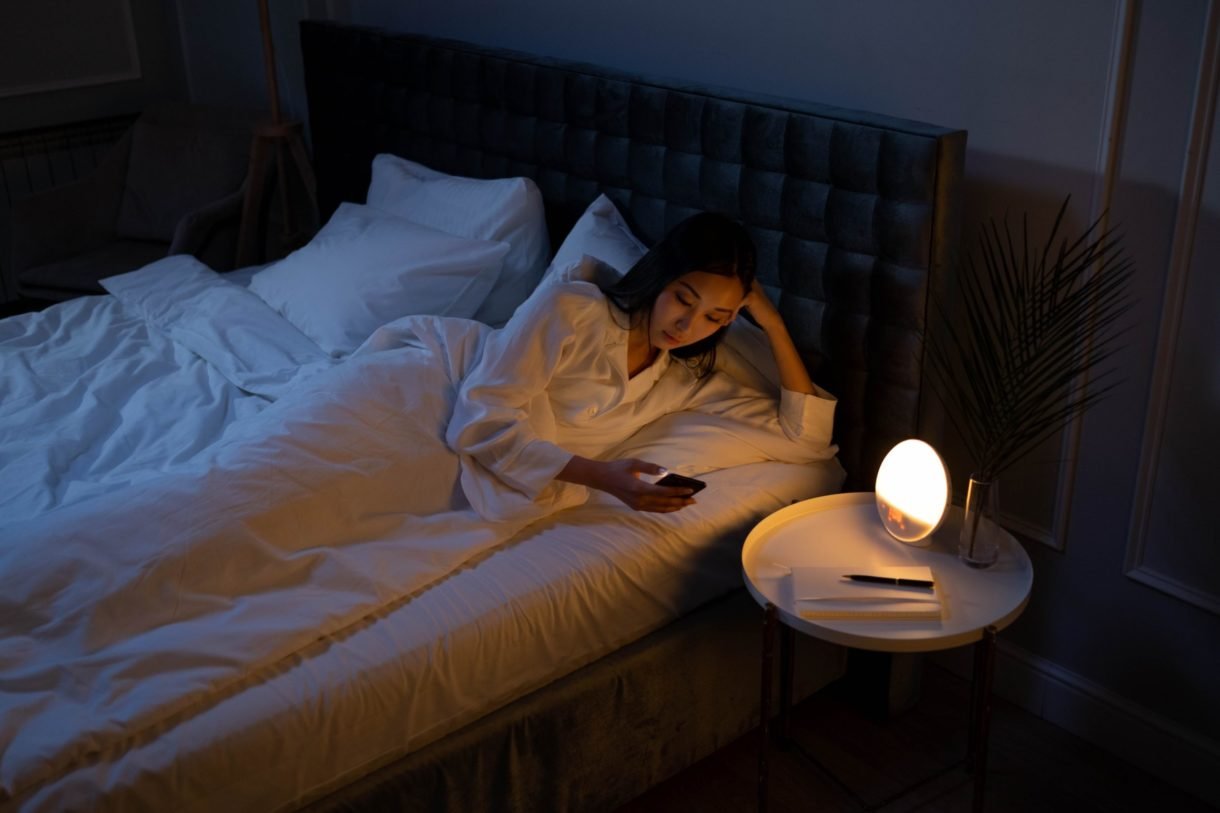4 Causes of Sleep Problems & How To Fix Them
Have you experienced difficulty sleeping lately? Whether it is hard for you to fall asleep or stay asleep, know that you are not alone. Millions of people struggle with getting enough quality sleep. Continue reading to discover some of the most common causes of sleep issues and what you can do to improve them.
1. Drinking caffeine too late in the day
- Did you know that caffeine, whether it be in coffee, sodas, caffeinated teas, etc…, can take up to 10 hrs to leave your body? Drinking sources of caffeine too late in the day may be the reason you are having trouble falling or staying asleep. Now, this is not across the board, since everyone metabolizes caffeine differently. There are even certain genetic SNP’s that make you more likely to metabolize caffeine much faster than others and vice versa. Those who have the “C allele” of this SNP are thought to slow down the metabolization of caffeine, leaving it in their systems much longer than those without this allele.
- SOLUTION: Stop caffeine intake after 12 pm- Now if you love your morning cup of joe, no worries, I am not asking you to give it up. I am, however, recommending that you stop drinking caffeine too late in the day. Since caffeine can take up to 10hrs to leave your body, say you go to be around 10 o’clock at night, noon would be a good time to have that last cup. If for some reason this is not feasible for you, I recommend swapping out the coffee for green tea. Green tea will still provide you with an energy boost, but has less caffeine and therefore will not take as long to clear out.
2. Exposure to blue light at night
- So, as much as we all love to “scroll” before bed or fall asleep to our favorite show, the blue light hue that comes from your phone, TV, and laptop screen mimics daylight. Why is this an issue? Well, your brain relies on key signals from the environment, such as light and darkness, to cue the release of certain hormones. So exposing yourself to blue light after sundown can suppress hormones, such as melatonin, that are supposed to help your body wind down and fall asleep with ease. (If this interests you, you can read more about it, here!)
- SOLUTION #1: Avoid screens ~30 minutes -1 hour before bed – Try reading, taking a bath, doing your skincare routine, or listening to relaxing music during this time instead. Dimming the lights in your home in the evening will also help support your body’s natural process to begin laying down.
- SOLUTION #2: Use blue-light blocking glasses after sunset – With so many of us working from home these days, sometimes avoiding screens just isn’t possible. Consider investing in some quality blue-light blocking glasses and using a screen dimmer for your computer/phone. After sunset, your body naturally wants to wind down, so it is important to support this process by limiting exposure to blue light if possible.
3. Sleeping in a room that’s too warm or with too much light
- Have you ever noticed that it can be a lot harder to fall asleep during the summer than in the winter? There’s a reason for that. Research shows that warmer temperatures make it much more difficult to fall asleep and stay asleep. Like I mentioned before, our body uses cues from the environment, the temperature being one of them, to determine when it’s time to release melatonin. If it is too warm or too bright, then your body will struggle to release melatonin to help you prepare for sleep.
- SOLUTION: Keep your bedroom dark and cool – The optimal sleep temperature for most is between 66-70F. If you have a thermostat you can try adjusting this in the evenings or even sleeping with the window open can provide enough coolness. If you have light coming into your room from the outside, try either using blackout curtains or sleeping with an eye mask to maximize darkness. Exposure to light suppresses your body’s melatonin production AND promotes the production of cortisol, which is responsible for waking you up in the mornings. So, the darker it is when you go to sleep, and the brighter it is upon waking, the better the regulation of these hormones.
4. Inconsistent sleep schedule
- I know for some, going to bed at 3 am one night and 8 pm the next may seem like no big deal, but going to sleep at drastically different times every night can be confusing for your hormones, which in turn, affects your sleep. If there is anything your body thrives on, it’s consistency. Consistency promotes a sense of safety that allows all the normal bodily processes to function optimally. A disruption in routine can be perceived as a threat to safety, which can alter hormone pathways and create a domino effect of “bad news” in the body. More specifically, inconsistent bedtimes affect your body’s “natural clock” which then disrupts appropriate hormone release. This will leave you feeling restless at night and groggy in the morning.
- SOLUTION: Create a consistent bedtime – For some, this is easier said than done, but setting a goal bedtime (based on what time you need to be up) is a great first step. It will take some time to adjust but even going to sleep 15 minutes earlier each night will help make the transition to an earlier bedtime feel seamless. Some research studies show that you get the most “bang for your buck” between the hours of 10 pm and 12 pm, and that falling asleep before 11 pm can even lower your risk for heart disease. So, if you are a night owl that tends to feel groggy in the mornings, consider going to bed a little earlier to see if that helps. Just keep in mind that it may take a few nights for your body to adjust, so don’t give up too quickly.
So there you have it! The most common causes of sleep problems and what you can do to fix them If you have questions for me, please reach out to me via email or on social media, I love to hear from you all.
𝐏𝐑𝐎 𝐓𝐈𝐏: Making changes to your lifestyle habits, like sleep, is sometimes easier said than done and can be overwhelming at first. Take baby steps and don’t get frustrated if things don’t work out perfectly right away, remember, small changes lead to big results.
I hope this was helpful to you. If you want more personalized guidance on improving your health, I’d love to work with you. If interested, you are welcome to book an appointment with me whenever you are ready ☺
Wishing you health & happiness always,




So interesting, thank you for sharing this information!